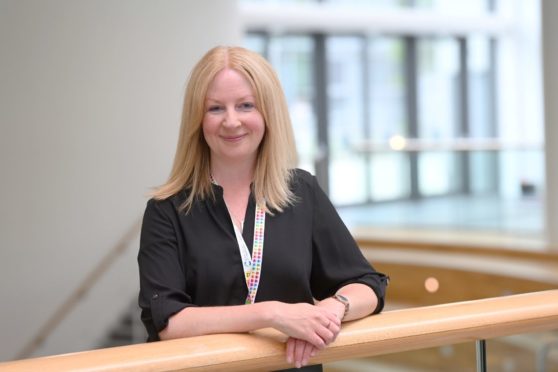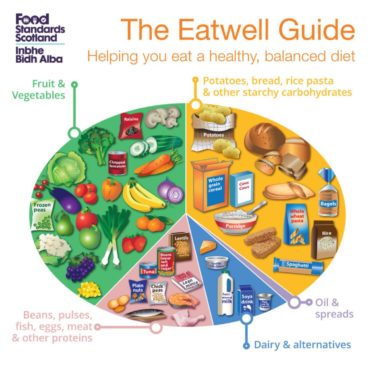Many of us have piled on weight binging on unhealthy food since the pandemic hit last year.
Snacking on sugar-laden chocolates and fattening crisps has given us comfort.
And if you’re working from home or on furlough you’re never too far from the fridge.
But nutritionist Dr Lindsey Masson says it’s now time for a reset and to think about changing our unhealthy habits.
And the Robert Gordon University lecturer has shared some of her top tips for getting our diets back on track.
Dr Masson said: “It’s understandable if people have put on more weight and have been eating more snack foods.
“Some people have made improvements to their diets but others have put on weight through a combination of consuming more calories but also being less physically active and more sedentary.
“But with normality coming back, now is the time for us to try to reset and think about the unhealthy habits we might have started during lockdown as a way of coping and thinking about what we can do in the future.”
Snacks should be no more than 100 calories
Dr Masson has spoken during the British Nutrition Foundation Healthy Eating Week which launched on Monday.
And the nutritionist said the best way to make sure you’re following a healthy diet is to plan ahead for the times you feel hungry.
It’s not only good to plan out our meals for the day but to work out our healthy nibbles too.
She said: “If you want to have a snack ideally it should be 100 calories or less rather than getting a chocolate brownie from a coffee shop at 350 calories.
“You can plan out healthy snacks. You can make a nice fruit salad, or have rice cakes with low-fat cream cheese for instance.
“It is difficult – we live in an obesogenic environment which means that all these unhealthy foods are all around us. When you go in shops, they often have discounted chocolate bars at the till to encourage us to impulse buy and the portion sizes are huge.
“We need to be more mindful about what we’re eating and putting into our mouths and plan what we’re eating and enjoy our food.
“If you’re going to have a treat, make sure you enjoy it.”
‘The Scottish diet is notoriously bad’
Dr Masson said the Eatwell guide produced by Food Standards Scotland can be a good place to start when planning out our meals to make sure we eat the right foods.
It shows the recommended ratio of fruit and vegetables, protein, carbohydrates and dairy foods we should eat each day.
She said: “Starchy carbohydrates get a bit of a bad reputation these days with people losing weight thinking they need to avoid them. That’s not the way to go because they should form approximately half of what we eat. But we need to be aware of portion sizes and eat wholegrain wherever possible.
“The Scottish diet is notoriously bad and we know over the last 15-20 years there’s been very little change. We still consume too much sugar and saturated fat and we don’t eat enough fibre.
“We know two-thirds of the adult population is overweight and 29% of adults are obese.
“This increases the risk of many cancers, heart disease and type 2 diabetes. Weight is something that we need to pay attention to at any time but potentially with lockdown things have become worse.”
Dr Masson recommends developing healthy habits, rather than going on diets which can be strict and hard to follow.
Small changes are better than diets
She said: “You’re better to make small changes such as introducing some fruit at breakfast time, maybe chopped fruit over bran flakes or having a banana on top of your toast.
“Small changes can be maintained long term rather than going on a diet which can be extreme and you can then find difficult to sustain.”
The British Nutrition Foundation runs Healthy Eating Week in June and has a variety of free resources to help get your diet back on track on its website.
Bridget Benelam, nutrition communications manager for the British Nutrition Foundation, said: “Working from home can be isolating for many and as our usual routines were disrupted, eating healthily may have slipped down the priority list as well.
“In all this, it is crucial to remember to be kind to yourself as the past year brought with itself extraordinary challenges.
“However, for people who may be concerned about their weight and looking to improve their dietary habits, we are currently celebrating Healthy Eating Week, which encourages people to enhance their health and wellbeing.
“We have also prepared lots of free resources like activity packs, trackers, videos and tutorials that people can refer to.”

